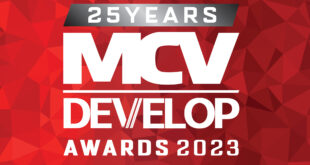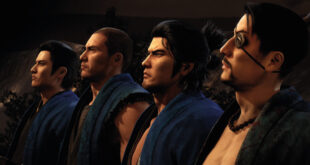If the last couple of years have taught us anything, it’s that we can never take too much for granted. Covid-19 may or may not be something that we continue to look at through the rear view mirror, but its legacy of remote and hybrid working continues to provide opportunities while posing questions around productivity.
Throw in the ever-present issue of a persistent skills shortage and a cost of living crisis that was nowhere to be seen twelve months ago, and it’s clear that it’s a unique and challenging time for game industry recruitment. To help us get a clear picture of how things have been, how they are now and how they might develop over the coming year, we’ve asked a crack team of in-house and agency recruitment experts to give us their take on the state of games industry recruitment, both for those with positions to fill and those eager to find their next challenge. Next up is Ben Harrison, human resources director at Sharkmob.
What have been the main challenges that recruiters have faced during 2022 and how have they/you worked to overcome them?
There’s a skills shortage in the games industry, with significantly more vacancies than appropriately skilled & experienced candidates to fill them. This has led to sourcing candidates internationally & sponsoring, supporting and relocating more candidates from across the globe. This has also led to a highly competitive & ever changing marketplace for remuneration & benefits, for which we’ve been using external salary benchmarking data to ensure we stay up-to-date and competitive within the market. The plus side of all this is that we have a multicultural workplace with talent from around the globe!
How is the worsening cost of living crisis manifesting itself in terms of recruitment and in-work support?
We’re finding that candidates are more open to considering new opportunities if their current employer isn’t responding to the cost of living crisis; People are also more keen on a hybrid working policy to cut costs on commuting and daily expenses if their employer isn’t providing any support. There is also more of a focus from candidates on company stability; for us at Sharkmob we are fully funded by Tencent with long-term investment and project plans so we are in a good position to grow and have ambitious plans over the coming years”
Is remote / hybrid working here to stay?
Hybrid working is definitely here to stay and when properly designed we see huge benefits and also see the value of face to face interaction in making the best games. At Sharkmob we have been evaluating different models of hybrid working, listening carefully to staff and thinking about the best ways of getting the benefits of office and home based work.
Do you feel the industry has moved forward in terms of diversity and inclusion this year? How so? Can you offer any examples?
It’s a constant talking point & brought up in nearly all interviews as candidates are aware of the lack of diversity & inclusion in the UK games industry through a variety of reports such as the UKIE census and want to work for organisations who not only acknowledge & understand these issues but take positive action on the variety of topics within D&I.
The UKIE #RaiseTheGame initiative has helped to highlight and improve diversity through recruiting practices, inclusive work environments and representation in games. At Sharkmob, we’re still in the early stages as a London studio, but we’re focusing a lot of energy on determining how we can best help support the industry and our team in the future and are building a best in class HR function to support key areas including diversity & inclusion.
What industry initiatives or programmes put in place recently (by your organisation or others) have inspired or impressed you and why?
The Game Assembly (TGA) introducing a Game Programmer Level 7 course in the UK after a hugely successful course in Sweden has created a great pathway into the games industry for juniors. Sharkmob’s Malmö Studio in Sweden has taken in dozens of interns from TGA since its founding in 2017, of which, over 95% have joined as full time juniors following the internship program.
Concept 101, a networking event for Concept Artists, both professionals & students was a massive success in London this September in its debut year. Sumo’s Diversity Internship Training Programme also caught the eye as a means to give people from under-represented groups the opportunities to receive training & mentoring in games programming through their Sumo Digital Academy.
What are your predictions for 2023 in terms of the challenges and opportunities that recruiters might face?
The down-turn in tech is a huge opportunity for the games industry to acquire hugely talented individuals that may not have previously considered a career in the games industry. We’ve already seen an increase in applications from people in the broader technology industry, which is good news for our ambitious headcount growth for next year. The ongoing recession may also lead to candidates staying put in the security of their current roles and disinterest in making a career move.
What’s the one piece of advice you would give someone looking to find or fill a role that you wouldn’t have considered a year ago?
For a candidate looking for your next career move, I’d say the important piece of advice is to choose your new company carefully – the market is becoming more volatile and as long as well as being aligned on the studio values and project, it’s important to join a company that has a long-term vision and financial backing to reach those goals.

 MCV/DEVELOP News, events, research and jobs from the games industry
MCV/DEVELOP News, events, research and jobs from the games industry




